Sport and Development
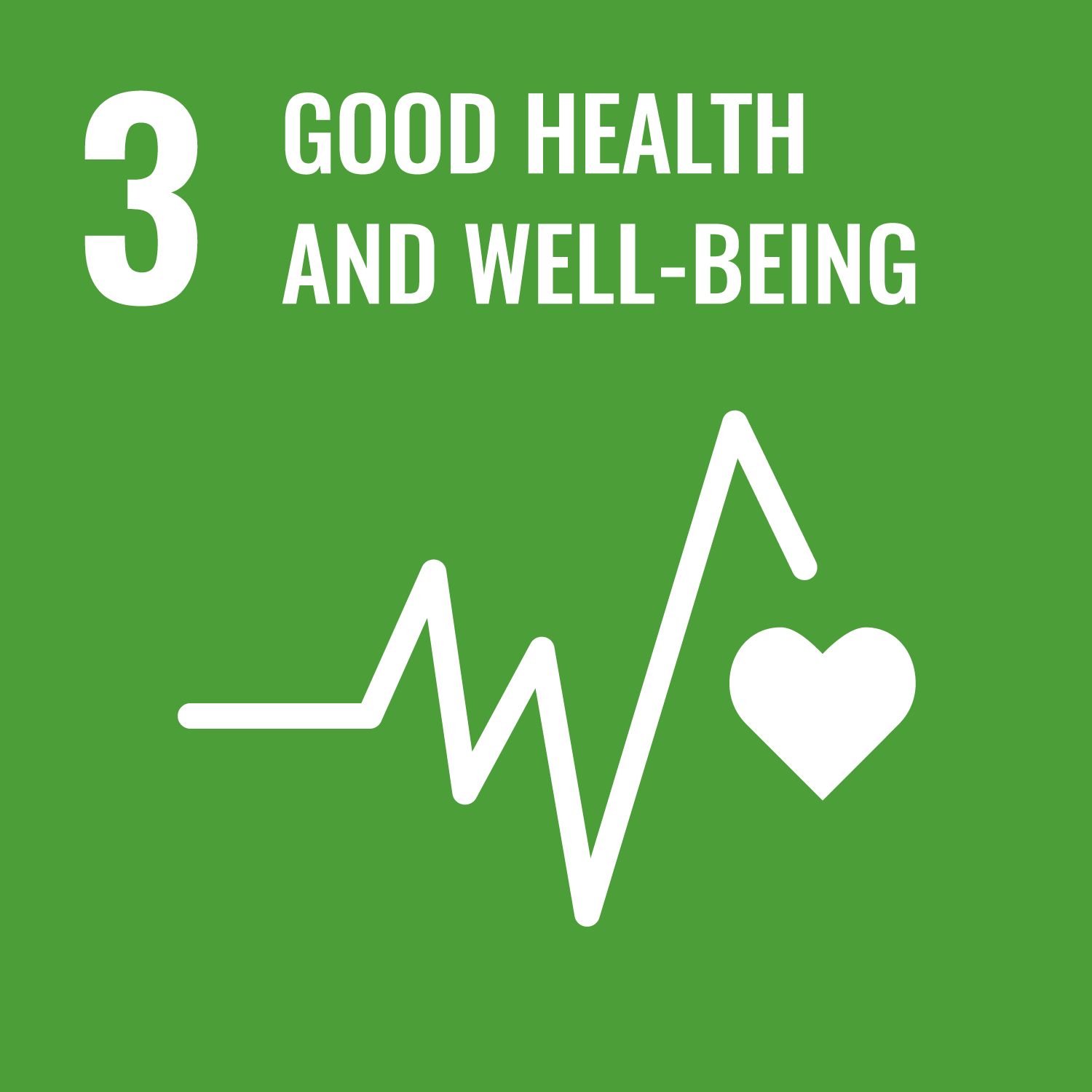
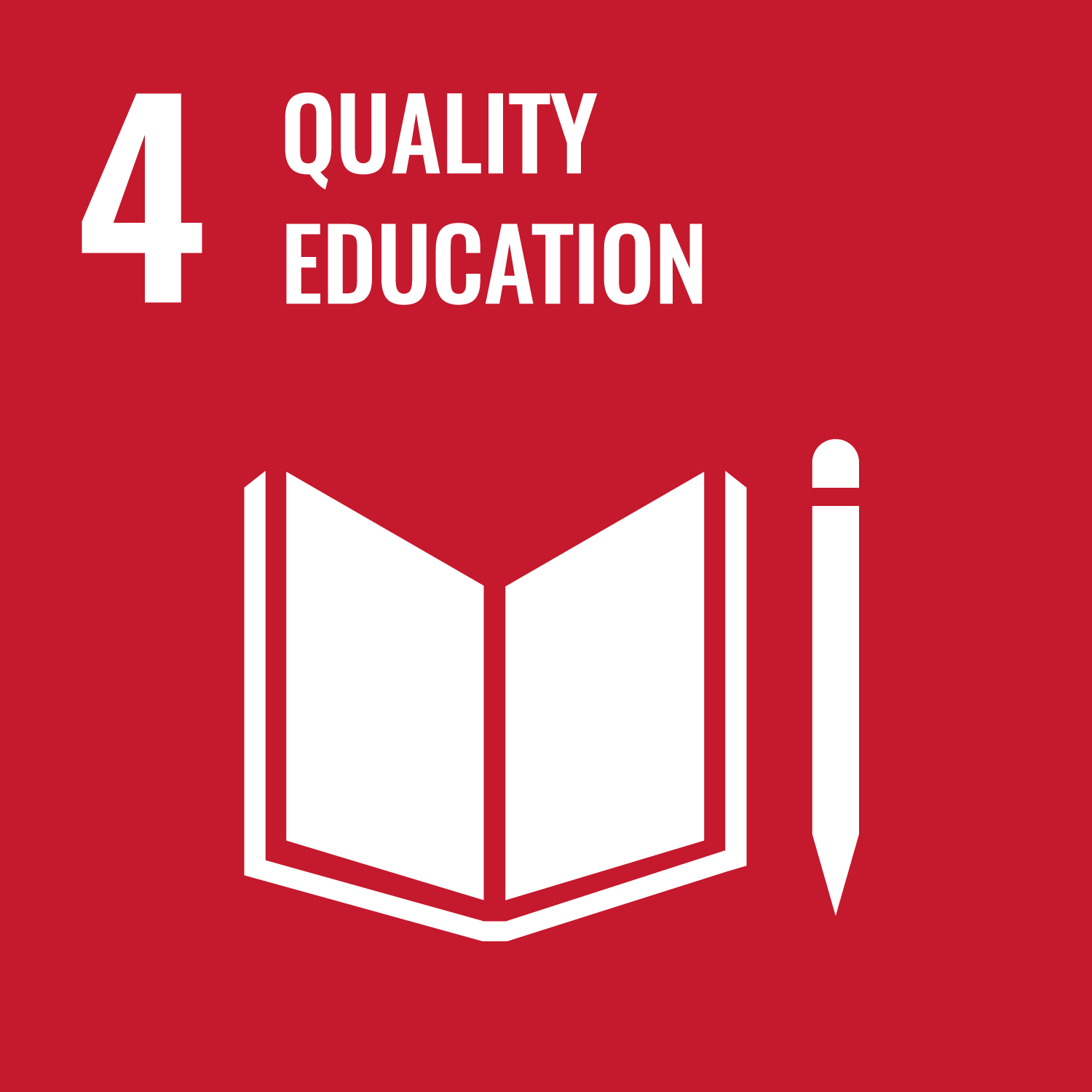
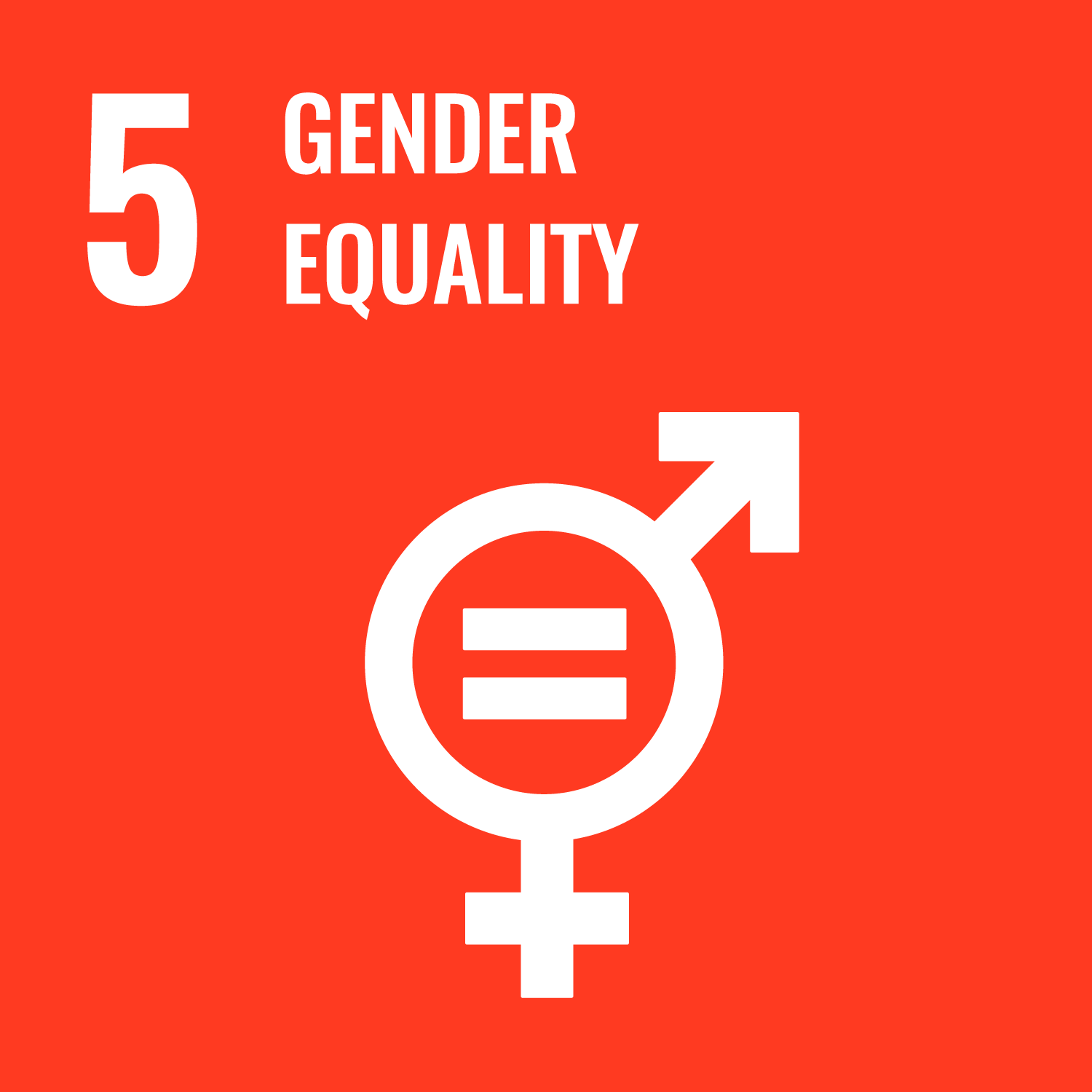
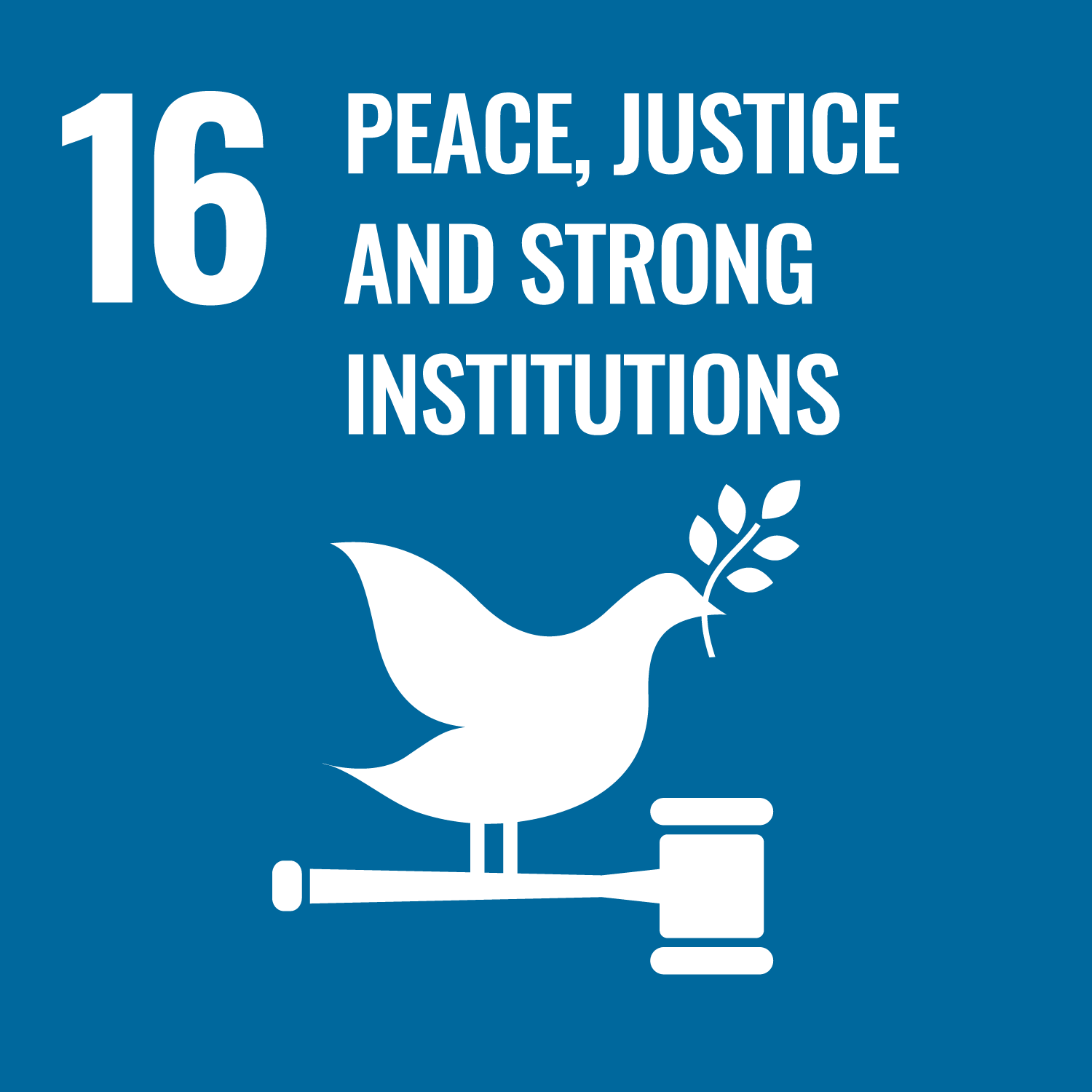
We will realize a peaceful society where everyone can equally enjoy sport, regardless of gender, social status, or other restrictions.
To promote the realization of a peaceful society where all people can equally choose to enjoy sport regardless of gender, age, culture, social or economic status, or disability.
Sport is linked to human life with dignity, which is the goal of human security, in the sense that it can make life richer, healthier and more vibrant through diverse ways of enjoyment and bring a sense of solidarity to people across various boundaries. It can also lead to the achievement of development goals such as health, education, social inclusion and peace, and its effects can bring about values of the human security, that is, life, livelihood and dignity.
For more information on JICA's initiatives through applying Human Security approaches, please see below.
Sport has long been regarded as a human right, and the United Nations Educational, Scientific and Cultural Organization (UNESCO) clearly states in the International Charter of Physical Education and Sport, adopted in November 1978, that "the practice of physical education and sport is a fundamental right for all". The concept of 'sport and development' has also evolved in the 21st century, with the 2030 Agenda for Sustainable Development, adopted in September 2015, in its preamble, that "Sport is also an important enabler of sustainable development."
In developing regions, a lack of project budgets, the weak
organizational capacity and human resource shortages of related organizations have hindered progress. There have also been many cases where sports-related projects in a country have sought only to improve competitive sport for the benefit of specialized elite athletes. Especially persons with disabilities and women also have limited opportunities to take part in sport in many regions. Furthermore, although school physical education is compulsory as part of the national curriculum in more than 90% of the world’s countries, it is often insufficiently implemented in developing countries.
Japan has experience with school physical education in equalizing sports opportunities and in integrating the sport into daily life and society early on, such as radio exercises. JICA has long been engaged in the "Sports and Development" initiative. Conducting international cooperation in the field of the sport by taking advantage of the strengths mentioned above of Japan significantly demonstrates Japan's unique brand of cooperation, backed by a development philosophy that promotes spiritual affluence as part of human development.
There are two facets of Sport and Development. One is the "Development of Sport," which considers sport as a development issue and works to promote and strengthen the sport itself. The other is "Development through Sport," which considers sport as a means and incorporates sport activities to solve development issues. The clusters are not defined in this global agenda, but the following three pillars will be set.
JICA will expand opportunities for participation in sport in developing regions and deliver the value and enjoyment of sport to people in developing countries. To achieve these goals, JICA will promote "Development of software infrastructure " to develop policies, institutions, systems and opportunities, "Development of hard infrastructure " to develop facilities, equipment and sports-friendly town development, and "promotion and strengthening of sport", including training of sports leaders."
JICA will promote the maintenance of physical fitness of the elderly and the prevention and improvement of lifestyle-related diseases by providing exercise opportunities to people of all ages. In addition, JICA will promote human resource development for the next generation in developing countries through the development of school physical education and extracurricular activities.
To achieve these goals, JICA will offer exercise opportunities and promote 'Health promotion for people of all ages' to maintain and improve health by creating a community where it is easy for everyone to exercise, and "education" by incorporating sports into school education to acquire physical fitness and habits for lifelong health, as well as non-cognitive skills.
JICA will provide opportunities for persons with disabilities and women to participate in sport as a means to enhance their sense of self-efficacy, and thereby promote their participation in society. We will also be developing sports opportunities in which everyone can participate fairly and equitably, in order to deepen exchanges among diverse people, promote mutual understanding, and thereby contribute to the realization of a peaceful society.
To achieve these goals, JICA will encourage 'Promotion of social participation', which aims to empower individual through sport, and "peacebuilding," which supports the holding of national championships where all people can participate fairly and equitably, overcoming differences in language, culture, religion, etc. and creates sports venues where diverse people can participate.
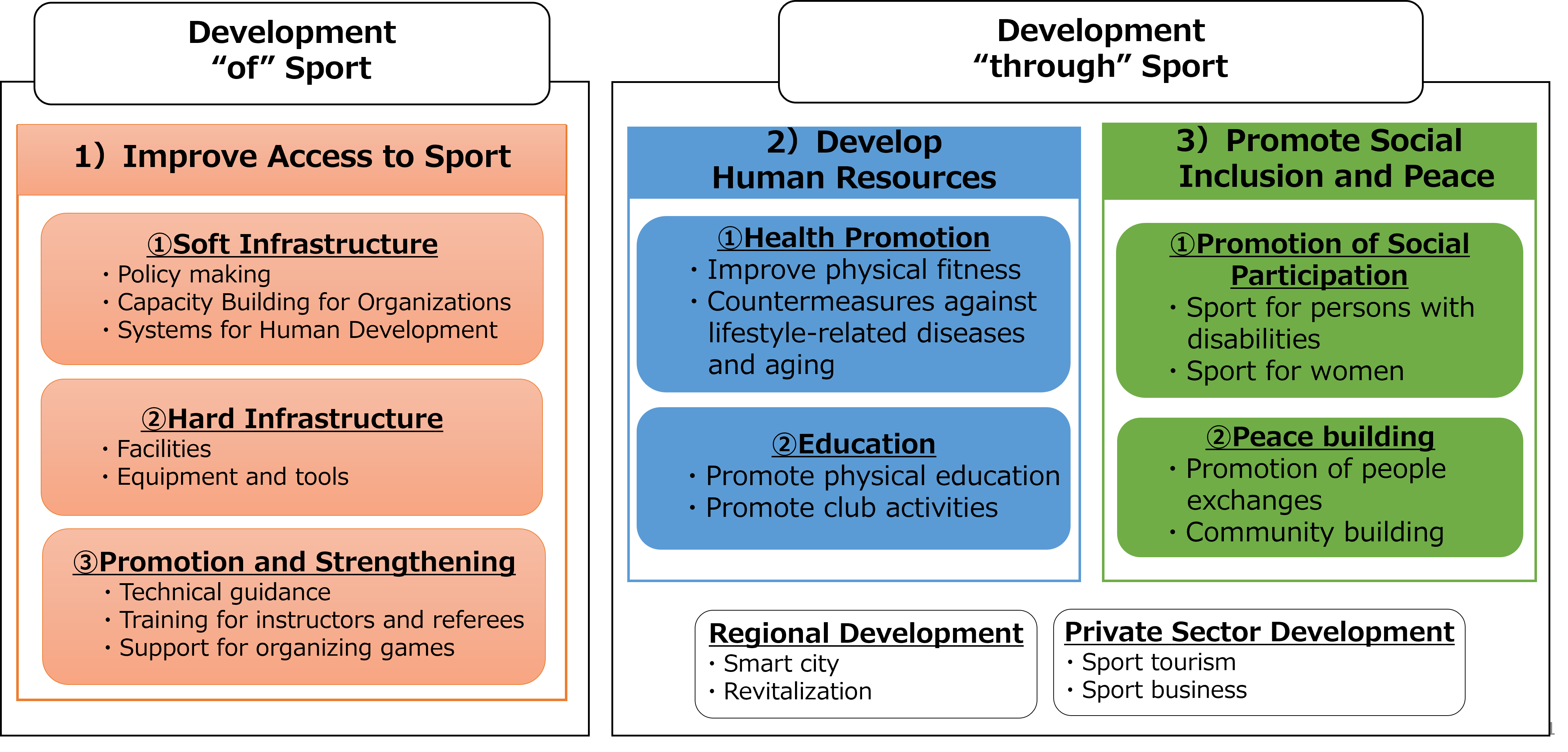
Sport is moving from being a limited activity performed by a specific group of people to becoming a social building tool that allows people in different situations and with different motivations to come together.
It "creates conditions in which people are free from 'fear' and 'lack' and can survive and live humanely in peace." In recent years, this philosophy has come to be known as 'human security'. This concept has been used in various discussions following the publication of the Human Development Report 1994 by the United Nations Development Programme (UNDP). Already from the late 1990s, human security has been one of the key issues in Japan's foreign policy.
In Japan, JICA has developed international cooperation activities in sports at the grassroots level since the 1960s, such as the Japan Overseas Cooperation Volunteers (JOCV) project, and its presence in Japan is not small.
JICA's mission is to put into practice cooperation that focuses on each and every human being and reaches them reliably in order to realize 'human security'. Sport contributes to one of the perspectives of human security: to protect the irreplaceable core of human life and to realize the freedom and potential of all."
scroll